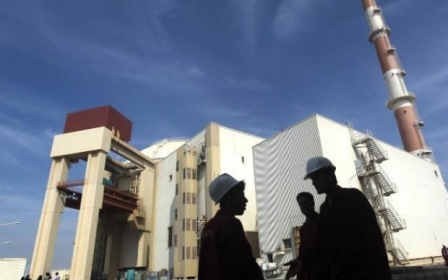Obama urges Iran to seize 'historic' chance for better ties

US President Barack Obama on Thursday urged the people and leaders of Iran to seize the "historic" opportunity presented by nuclear talks and remake long-troubled ties between the two countries.
In a video message directed at Iranians celebrating the new year festival of Nowruz, Obama said that "we have the best opportunity in decades to pursue a different future between our countries."
Negotiators in Switzerland are approaching the final stages of an agreement that would have Iran scale back its nuclear programme in return for relief from sanctions.
But Obama's Republican foes, Israel and hawks in Tehran have voiced opposition to the agreement.
"There are people in both our countries and beyond who oppose a diplomatic resolution," Obama said.
"My message to you - the people of Iran - is that together we have to speak up for the future we seek.
"The days and weeks ahead will be critical. Our negotiations have made progress, but gaps remain."
Obama's video was subtitled in Farsi and included a direct appeal to Iran's large and youthful population.
"I believe that our nations have an historic opportunity to resolve this issue peacefully, an opportunity we should not miss," Obama said.
"A nuclear deal now can help open the door to a brighter future for you, the Iranian people, who as heirs to a great civilisation have so much to give to the world.
"For decades, our nations have been separated by mistrust and fear. Now it is early spring.
"Now it is up to all of us, Iranians and Americans, to seize this moment and the possibilities that can bloom in this new season."
The video message came after mixed messages emerged from the talks earlier in the day in Switzerland, where US Secretary of State John Kerry and his Iranian counterpart hailed "progress," but a European negotiator said Tehran and the six major powers were "pretty far from a deal."
The countdown has begun with a 31 March deadline to agree to the outlines of an agreement that would see Iran scale back its nuclear program in return for relief from sanctions.
The mooted agreement, due to be finalised by July, is aimed at convincing the world after a standoff now in its 13th year that Iran won't build nuclear weapons under the guise of its civilian programme.
The highly complex deal would likely involve Iran reducing in scope its nuclear activities, allowing ultra-tight inspections, exporting nuclear material and limiting development of new nuclear machinery.
In exchange Iran would be granted staggered relief from the mountain of painful sanctions that have strangled its oil exports and hammered its economy.
Tehran, which denies wanting nuclear weapons, also wants to expand its activities in order to fuel nuclear power stations and meet its energy needs.
Stay informed with MEE's newsletters
Sign up to get the latest alerts, insights and analysis, starting with Turkey Unpacked
Middle East Eye delivers independent and unrivalled coverage and analysis of the Middle East, North Africa and beyond. To learn more about republishing this content and the associated fees, please fill out this form. More about MEE can be found here.




